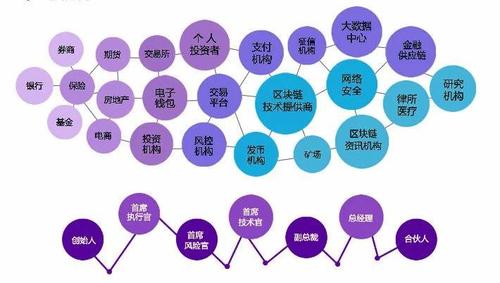Title: Unraveling the Economic Core of Blockchain
Blockchain technology has emerged as a revolutionary force, not only in the realm of finance but across various industries. At its heart lies a unique economic framework that drives its functionality and value proposition. Let's delve into the core economic principles of blockchain.
Decentralization
At the core of blockchain lies the principle of decentralization. Traditional financial systems are often centralized, controlled by banks or financial institutions. Blockchain, however, operates on a decentralized network of nodes, where transactions are validated and recorded by multiple participants.
Guiding Principle: Decentralization ensures transparency, security, and immutability of transactions, eliminating the need for intermediaries and reducing the risk of manipulation or fraud.
Consensus Mechanisms
Consensus mechanisms form the backbone of blockchain networks, enabling agreement among participants on the validity of transactions. Various consensus algorithms such as Proof of Work (PoW), Proof of Stake (PoS), and Delegated Proof of Stake (DPoS) ensure the integrity of the ledger.
Guiding Principle: Consensus mechanisms foster trust and reliability in blockchain networks by ensuring that all participants reach agreement on the validity of transactions without the need for a central authority.

Tokenomics
Tokenomics refers to the economic model underlying blockchain networks, including the creation, distribution, and utilization of tokens. Tokens can represent digital assets, currencies, or utility within a specific ecosystem.
Guiding Principle: Tokenomics incentivizes network participants to contribute resources such as computing power (in PoW) or tokens (in PoS) in exchange for rewards, thereby fostering network security and sustainability.
Smart Contracts
Smart contracts are selfexecuting contracts with the terms of the agreement directly written into code. These contracts automatically execute and enforce agreements when predetermined conditions are met, without the need for intermediaries.
Guiding Principle: Smart contracts enable automation, efficiency, and trust in transactions, reducing costs and streamlining processes across various industries, from supply chain management to decentralized finance (DeFi).
Tokenization of Assets
Blockchain enables the tokenization of realworld assets, representing ownership or rights in a digital format. This includes assets such as real estate, art, commodities, and securities.
Guiding Principle: Tokenization unlocks liquidity, fractional ownership, and increased accessibility to assets, democratizing investment opportunities and reducing barriers to entry for investors.
Immutable Ledger
Blockchain's immutable ledger ensures that once a transaction is recorded, it cannot be altered or deleted. Each block contains a cryptographic hash of the previous block, creating a secure and tamperresistant record of transactions.
Guiding Principle: Immutability guarantees the integrity and trustworthiness of the blockchain ledger, providing a verifiable history of transactions without the risk of censorship or alteration.
Blockchain's economic core encompasses decentralization, consensus mechanisms, tokenomics, smart contracts, asset tokenization, and immutability. These principles form the foundation of a transparent, secure, and efficient ecosystem that is reshaping industries and redefining the future of commerce.
标签: 区块链经济发展 区块链经济通俗说法 区块链的核心是什么? 区块链的经济核心是什么 区块链 经济







